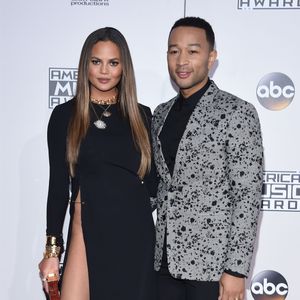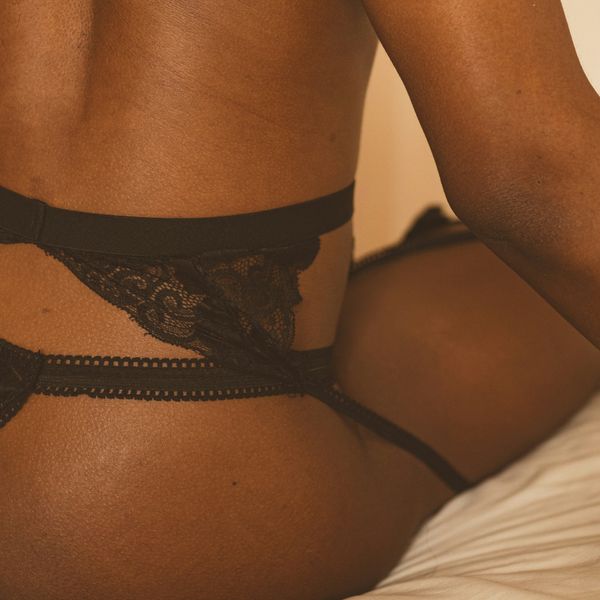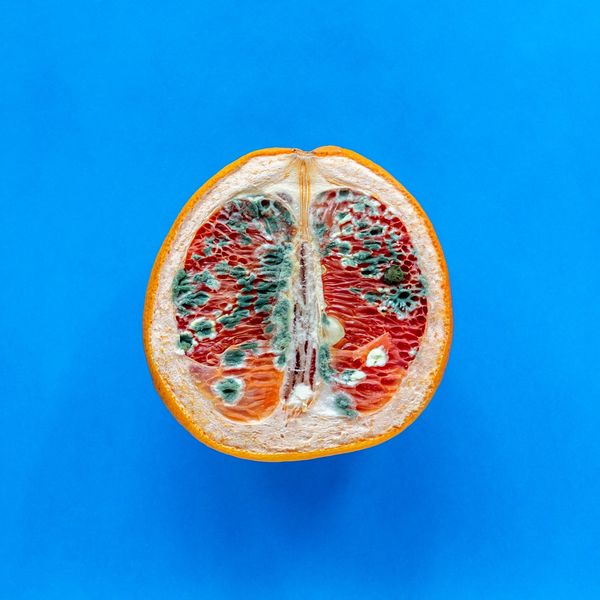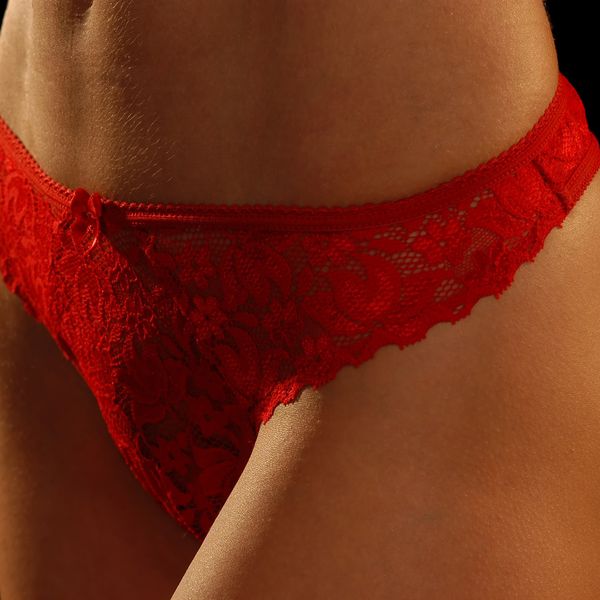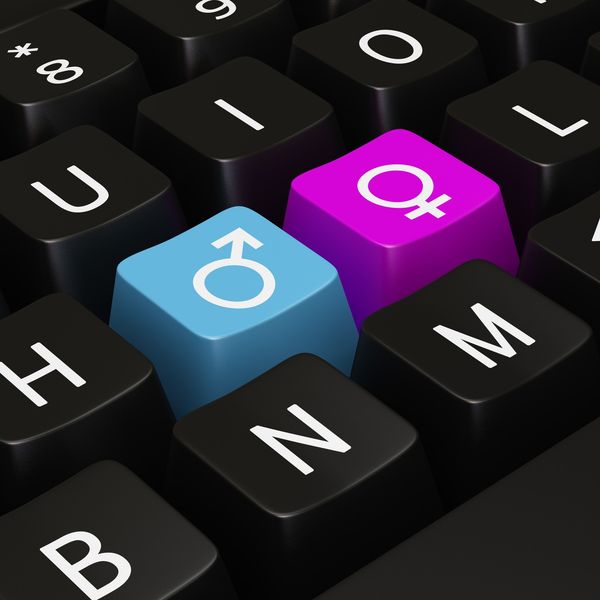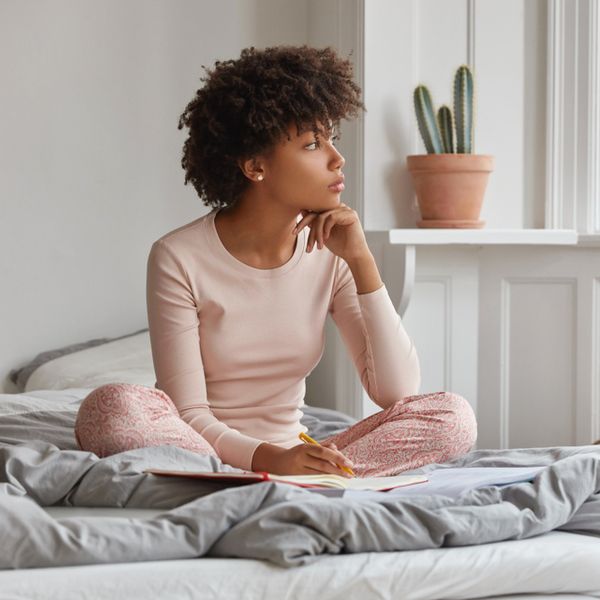
When I was 19 years old, my period didn't come for two months. Naturally, my first thought was, oh shit, I'm pregnant, because there was definitely a possibility. I had been with my then-boyfriend for years and we weren't using protection, so the idea of two lines showing up on a stick wasn't that far off. Buying a pregnancy test at a pharmacy can be such an awkward experience, so I pulled my hoodie over my face as if I was on the run from the law, grabbed a bunch of unnecessary items, and I bought the test. All of that, and it came back negative. My OBGYN warned me that it was possible that I could have gotten a false negative so I scheduled an appointment with her and I was hopeful that by the time I had gone, my period would have come. It didn't. Two months turned into three, so I walked into that office prepared for the worst. Because I knew I didn't want a child, I had been rehearsing how I would tell my doctor that I wasn't ready to be a mother. My relationship was beyond dysfunctional, I wasn't mentally prepared for motherhood, and as selfish as it sounds, I didn't want to be a teenage parent.
As my legs dangled on the examination table awaiting what I thought would be the worst conversation, she walked in, and immediately hugged me. It was as if she knew everything I was feeling and she leaned in and delicately asked me, "Do you desire pregnancy?" And I abruptly responded, "No ma'am." As gentle as she was, I still wondered how I found myself standing in front of the same doctor who made sure I was on birth control before I left for college, telling her I might be pregnant as I approached junior year.
The days that I waited to hear back from her felt like years, but one day while I was at work, she called. When I went back in for my follow-up, she wasn't smiling at all - she looked worried. The words that followed after changed my reproductive life forever: "You're not pregnant, you have PCOS." At that point, I felt like pregnancy would have been easier to swallow. Between my tears and overall confusion, what I made out from the conversation was my hormones were off-balance, and that because I had gained a significant amount of weight, there was a possibility that I could be infertile. Leaving the office, she also prescribed that I take a medication called Metformin to bring my period down and stay on birth control to regulate my cycle. Afterwards, I immediately went home, called my mom, and did tons of research on PCOS.
What You Need to Know About Polycystic Ovary Syndrome
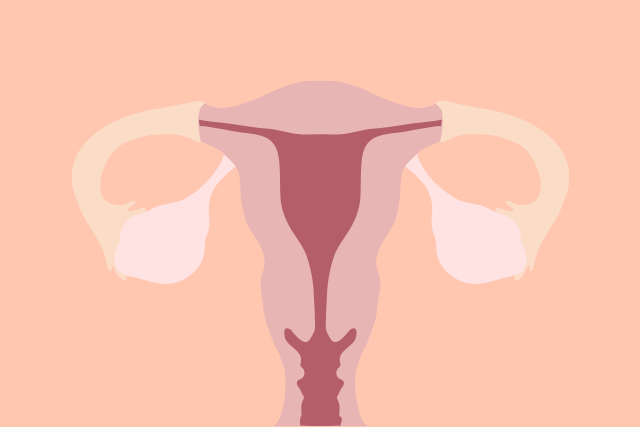
According to Healthline.com, PCOS is defined as a condition that affects a woman's hormone levels. Women with PCOS produce higher-than-normal amounts of male hormones. This hormone imbalance causes them to skip menstrual periods and makes it harder for them to get pregnant. PCOS also causes hair growth on the face and body and baldness. And it can contribute to long-term health problems like diabetes and heart disease. Birth control pills and diabetes drugs can help fix the hormone imbalance and improve symptoms.
Who PCOS Affects
PCOS is a problem with hormones that affects women during their childbearing years (ages 15 to 44). Between 2.2 and 26.7 percent of women in this age group have PCOS and studies show that up to 70% of women who have PCOS haven't been diagnosed.
Symptoms of PCOS
- Irregular or skipped periods
- Cysts in the ovaries
- High levels of male hormones
- Infertility/difficulty getting pregnant (because of irregular ovulation or failure to ovulate because if your period isn't coming, you aren't ovulating)
- Excessive hair growth – usually on the face, chest, back or butt.
- Weight gain
- Patches of dark skin
- Thinning hair and hair loss from the head
- Oily skin or acne
How PCOS Affects Black women
- Increased rates of hirsutism (excess hair growth in typical male patterns, but on a female)
- Higher risk of cardiovascular disease or metabolic syndrome
- Lower likelihood of getting pregnant (Black women do not have as much success with in vitro fertilization as white women, and they're also more likely to be obese—a risk factor for infertility)
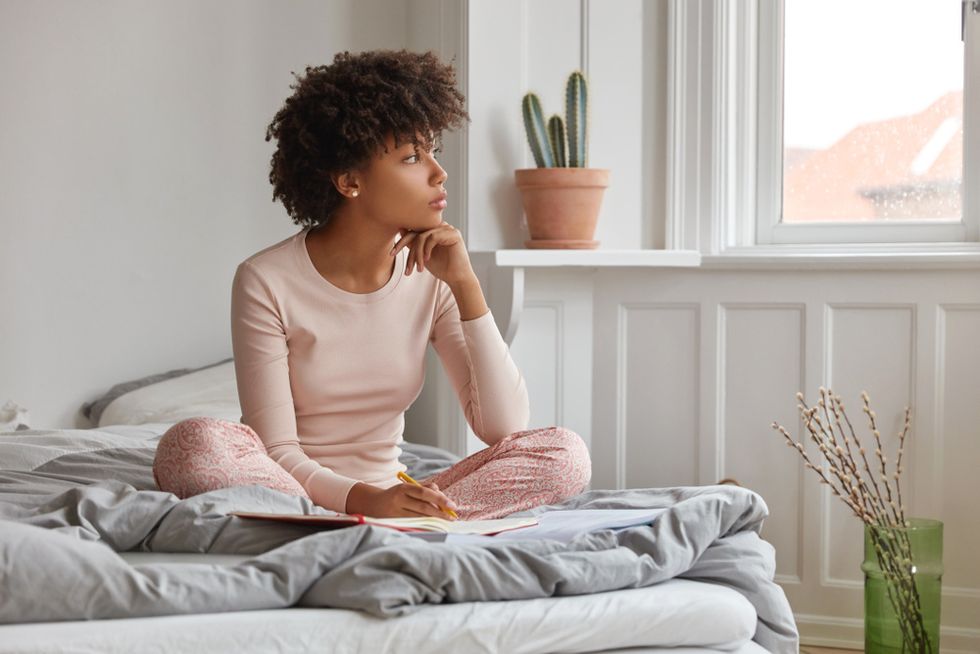
Shutterstock
All of the information I found on Beyonce's internet, and I still felt lost because, outside of the irregular period, I had none of the symptoms that I saw online. I'd gone from mentally preparing to have an abortion, to searching for support groups for a hormonal disorder that could prevent me from having children. With a combination of prayer and self-reflection, I decided I'd do whatever it took to take my body back. As kind as my doctor had been, she wasn't helpful outside of the scope of Western Medicine and I needed more than pills, I needed real healing.
Over the course of three years, I did these things to reverse my PCOS symptoms:
- I worked out two to five days a week
- I went all organic (I started with little things, like buying the foods I consumed the most in the organic variety)
- I stopped drinking sodas/juice and eliminated high carb fruits/vegetables from my diet (I now only drink water, coffee, and green juice with no fruits added daily)
- I focused on losing stomach fat because excess weight around my midsection means added pressure on my ovaries
- I reminded myself that on days when I didn't want to work out, I was doing this for the children I wanted to give life to someday (I know it sounds like a lot but the thought of infertility is scary so I practiced affirmations daily)
- I got off Metformin and relied on my body to do the work
Months before my 23rd birthday, I made a follow-up appointment with my doctor. She was thrilled to tell me that my androgen levels (testosterone levels) had gone down and that I was making great progress. I walked out of that office feeling like I was finally on the path to fertility again, but I was still on the pill. What most doctors don't tell you about your period on birth control, is that it's not a real period. Because birth control alters the levels and hormones in your body, menstruation is triggered by a drop in the hormones estrogen and progesterone, both of which are artificially produced by the pill. This means that menstruating on the pill isn't a real period; it's "withdrawal bleeding" produced by a lack of artificial hormones aka, a "fake" period. So I couldn't be happy with those levels dropping if I was still taking birth control pills.
Once I was single I became celibate, so I didn't need the pill anymore, but I stayed on out of fear. Days before I finished my last pack, I decided to trust myself, pray even harder, and thirty days after I got off the pill, my period came on time and it's been regular ever since. My cycle has changed so much since being off the pill for the better, and I can feel so much now that I didn't before. Ovulation is something I'm excited to experience. I no longer have menstrual cramps because I feed my body what it needs, and I stay active. This journey hasn't been easy but I made a decision to undo the damage, and research (on everything from herbs to fight PCOS, plant-based feminine products, what your menstrual blood color means, and how to keep your hormone levels even through your diet.)
That doctor's appointment was eight years ago, and I'm now 60 lbs down. I have a new fertility doctor who, after a series of tests, officially confirmed that I was misdiagnosed. And I'm exploring such a beautiful relationship with my body and womb wellness overall.
Want more stories like this? Sign up for our newsletter here to receive our latest articles and news straight to your inbox.
Featured image by Shutterstock
Because We Are Still IT, Girl: It Girl 100 Returns
Last year, when our xoNecole team dropped our inaugural It Girl 100 honoree list, the world felt, ahem, a bit brighter.
It was March 2024, and we still had a Black woman as the Vice President of the United States. DEI rollbacks weren’t being tossed around like confetti. And more than 300,000 Black women were still gainfully employed in the workforce.
Though that was just nineteen months ago, things were different. Perhaps the world then felt more receptive to our light as Black women.
At the time, we launched It Girl 100 to spotlight the huge motion we were making as dope, GenZennial Black women leaving our mark on culture. The girls were on the rise, flourishing, drinking their water, minding their business, leading companies, and learning to do it all softly, in rest. We wanted to celebrate that momentum—because we love that for us.
So, we handpicked one hundred It Girls who embody that palpable It Factor moving through us as young Black women, the kind of motion lighting up the world both IRL and across the internet.
It Girl 100 became xoNecole’s most successful program, with the hashtag organically reaching more than forty million impressions on Instagram in just twenty-four hours. Yes, it caught on like wildfire because we celebrated some of the most brilliant and influential GenZennial women of color setting trends and shaping culture. But more than that, it resonated because the women we celebrated felt seen.
Many were already known in their industries for keeping this generation fly and lit, but rarely received recognition or flowers. It Girl 100 became a safe space to be uplifted, and for us as Black women to bask in what felt like an era of our brilliance, beauty, and boundless influence on full display.
And then, almost overnight, it was as if the rug was pulled from under us as Black women, as the It Girls of the world.
Our much-needed, much-deserved season of ease and soft living quickly metamorphosed into a time of self-preservation and survival. Our motion and economic progression seemed strategically slowed, our light under siege.
The air feels heavier now. The headlines colder. Our Black girl magic is being picked apart and politicized for simply existing.
With that climate shift, as we prepare to launch our second annual It Girl 100 honoree list, our team has had to dig deep on the purpose and intention behind this year’s list. Knowing the spirit of It Girl 100 is about motion, sauce, strides, and progression, how do we celebrate amid uncertainty and collective grief when the juice feels like it is being squeezed out of us?
As we wrestled with that question, we were reminded that this tension isn’t new. Black women have always had to find joy in the midst of struggle, to create light even in the darkest corners. We have carried the weight of scrutiny for generations, expected to be strong, to serve, to smile through the sting. But this moment feels different. It feels deeply personal.
We are living at the intersection of liberation and backlash. We are learning to take off our capes, to say no when we are tired, to embrace softness without apology.
And somehow, the world has found new ways to punish us for it.

In lifestyle, women like Kayla Nicole and Ayesha Curry have been ridiculed for daring to choose themselves. Tracee Ellis Ross was labeled bitter for speaking her truth about love. Meghan Markle, still, cannot breathe without critique.
In politics, Kamala Harris, Letitia James, and Jasmine Crockett are dragged through the mud for standing tall in rooms not built for them.
In sports, Angel Reese, Coco Gauff, and Taylor Townsend have been reminded that even excellence will not shield you from racism or judgment.

In business, visionaries like Diarrha N’Diaye-Mbaye and Melissa Butler are fighting to keep their dreams alive in an economy that too often forgets us first.
Even our icons, Beyoncé, Serena, and SZA, have faced criticism simply for evolving beyond the boxes society tried to keep them in.
From everyday women to cultural phenoms, the pattern is the same. Our light is being tested.

And yet, somehow, through it all, we are still showing up as that girl, and that deserves to be celebrated.
Because while the world debates our worth, we keep raising our value. And that proof is all around us.
This year alone, Naomi Osaka returned from motherhood and mental health challenges to reach the semifinals of the US Open. A’ja Wilson claimed another MVP, reminding us that beauty and dominance can coexist. Brandy and Monica are snatching our edges on tour. Kahlana Barfield Brown sold out her new line in the face of a retailer that had been canceled. And Melissa Butler’s company, The Lip Bar, is projecting a forty percent surge in sales.

We are no longer defining strength by how much pain we can endure. We are defining it by the unbreakable light we continue to radiate.
We are the women walking our daily steps and also continuing to run solid businesses. We are growing in love, taking solo trips, laughing until it hurts, raising babies and ideas, drinking our green juice, and praying our peace back into existence.
We are rediscovering the joy of rest and realizing that softness is not weakness, it is strategy.
And through it all, we continue to lift one another. Emma Grede is creating seats at the table. Valeisha Butterfield has started a fund for jobless Black women. Arian Simone is leading in media with fearless conviction. We are pouring into each other in ways the world rarely sees but always feels.

So yes, we are in the midst of societal warfare. Yes, we are being tested. Yes, we are facing economic strain, political targeting, and public scrutiny. But even war cannot dim a light that is divinely ours.
And we are still shining.
And we are still softening.
And we are still creating.
And we are still It.

That is the quiet magic of Black womanhood, our ability to hold both truth and triumph in the same breath, to say yes, and to life’s contradictions.
It is no coincidence that this year, as SheaMoisture embraces the message “Yes, And,” they stand beside us as partners in celebrating this class of It Girls. Because that phrase, those two simple words, capture the very essence of this moment.
Yes, we are tired. And we are still rising.
Yes, we are questioned. And we are the answer.
Yes, we are bruised. And we are still beautiful.

This year’s It Girl 100 is more than a list. It is a love letter to every Black woman who dares to live out loud in a world that would rather she whisper. This year’s class is living proof of “Yes, And,” women who are finding ways to thrive and to heal, to build and to rest, to lead and to love, all at once.
It is proof that our joy is not naive, our success not accidental. It is the reminder that our light has never needed permission.
So without further ado, we celebrate the It Girl 100 Class of 2025–2026.
We celebrate the millions of us who keep doing it with grace, grit, and glory.
Because despite it all, we still shine.
Because we are still her.
Because we are still IT, girl.
Meet all 100 women shaping culture in the It Girl 100 Class of 2025. View the complete list of honorees here.
Featured image by xoStaff
Give Thanks: 10 Tips For Hosting An Absolutely Awesome Friendsgiving
If you’ve never checked out an episode of the ReLiving Single Podcast featuring Maxine and Synclaire — oops, I mean Erika Alexander and Kim Coles — it’s worth listening to an episode or two; especially if you’re someone like me who watches the Living Single reruns on TV One, sometimes, like they just came out. Good times.
And what does this even remotely have to do with Friendsgiving? Well, if you ever wondered what the origin story of this non-holiday-holiday is, legend has it that it’s mostly due to the combination of a 2007 tweet and the show that tries to act like it wasn’t birthed out of Living Single: Friends (I’m not the only one who feels this way either; you can read more about all of that here, here and here).
Apparently, there was a Thanksgiving episode that featured all of the friends having dinner together. And y’all, there was simply no way that I was going to mention the latter without shouting out the original (amen?).
Okay, so with that out of the way — Friendsgiving. Something that I appreciate about twists to holidays like this is that it’s a reminder that there is no one way to celebrate special occasions. And so, if, for whatever the reason, you will not or cannot be with family during the holiday season, there are certainly other alternatives at your disposal.
That being said, if the thought of spending time with friends this Thanksgiving is something that you’d like to do, yet you’re not sure how to host it in a way that will make Friendsgiving a fan favorite for your entire circle — I’ve got 10 suggestions that can make the planning process easy as pumpkin (or sweet potato) pie.
1. Position Chrysanthemums or Orchids for Your Table Décor
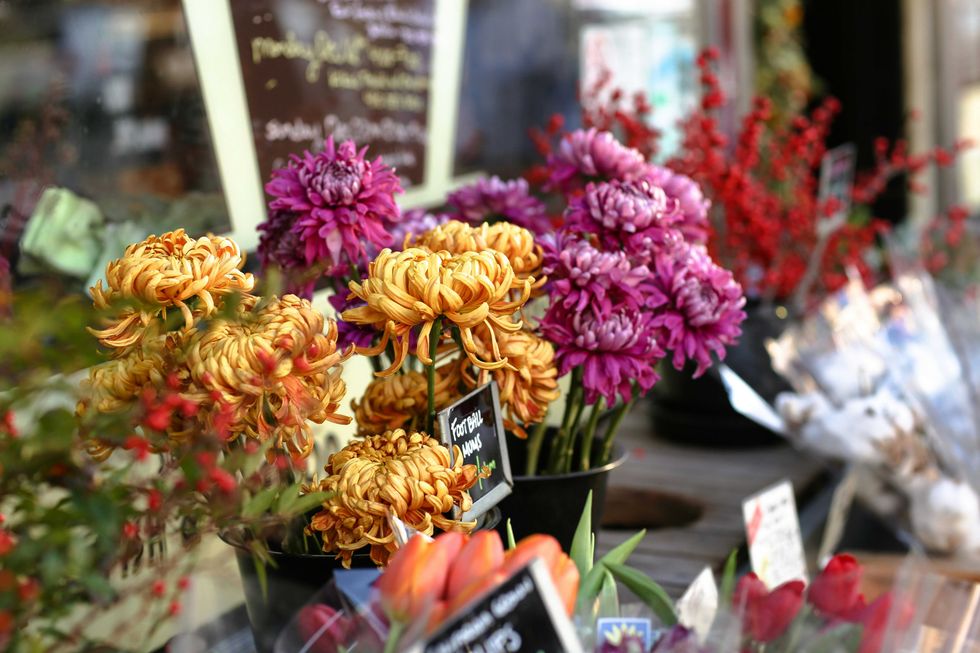
Unsplash
Let’s start with décor first. Listen, aside from cleaning up your place, you don’t have to be over the top. If you put together a really nice centerpiece or put a flower at each table setting, honestly, you’re all good. And if you’re someone who is big on details and symbolism, my recommendation would be to go with some chrysanthemums and/or orchids.
When it comes to chrysanthemums, not only are they a peak fall flower, they represent things like friendship and happiness. And orchids? They tend to bloom during the fall and spring seasons and, not only are they about luxury, certain orchid colors also symbolize friendship (for the record, yellow roses symbolize friendship too). Perfect.
2. Incorporate Scents That Cultivate Gratitude
Speaking of cultivating a warm and inviting space, you can never go wrong with scented soy candles — or at least having an essential oil diffuser in a few spots. Some scents that actually help to bring in the spirit of gratitude include vanilla, jasmine, ginger, cedarwood and frankincense.
3. Use Upscale Paper Products to Dine With
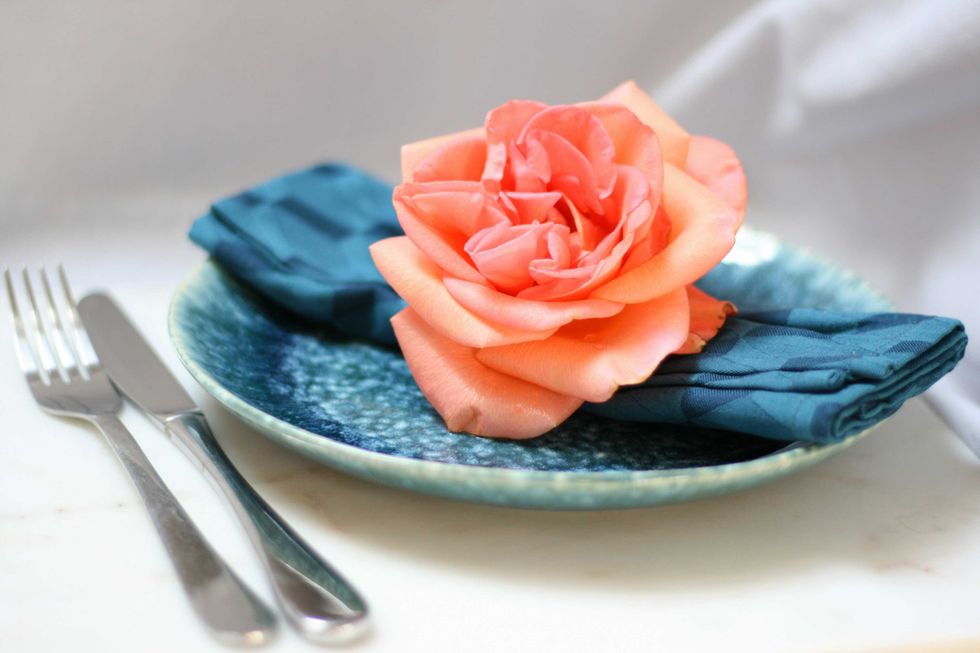
Unsplash
Let’s be real — a lot more of us would probably host events in our home if it wasn’t for the mess that is left behind in our kitchen once the festivities are over. Wanna avoid that? Use paper plates. No, I don’t mean the cheap Styrofoam ones. SMDH. These days, there are paper (and plastic) plate brands that will low-key blow your mind when it comes to how bougie they look. Some that are worth considering are located here, here and here.
4. Handwrite Thank-You Notes (Use Them As Place Settings)
If you’re like Tiffany (from the HBO series Insecure — what a time) was at that memorable dinner party when all hell broke loose between Lawrence and Issa and you’re pretty anal — I mean, particular — LOL — about place settings, it’s a nice touch to pick up some blank thank-you cards that you can write a personalized “I’m thankful for you because…” message in. Place each one where you’d like each friend to sit. They won’t see it coming and it’s a really nice touch.
5. Have Everyone Bring Their Favorite Homemade Dish

Unsplash
Okay, and what if what has you on the fence about hosting is you don’t feel like doing a ton of cooking? Chile, this is where the concept of having a potluck comes in. Get everyone to bring the dish that they claim they cook the best and make sure to let them know how many individuals you plan on coming (so that they will make enough). You can even make a game out of it by having everyone anonymously vote for the first, second and third best dishes out of the bunch. Take it up a notch by having a prize for each winner.
6. Take a Warm Drink and Dessert Poll Beforehand
You know what isn’t discussed enough about dinner parties? Folks bringing desserts that other people don’t even like. SMDH. You can avoid this from becoming an issue at your Friendsgiving by sending an email (most people prefer that to group chats; let’s be real — and make sure to BCC everyone as well) asking everyone to share what their top three favorite desserts and warm drinks are. Then pick the top 2-3 out of the bunch. That way, you won’t have a ton of (for instance) coffee cake or apple cider lying around that no one even wanted in the first place.
7. Create a Signature Friendsgiving Mocktail and Cocktail
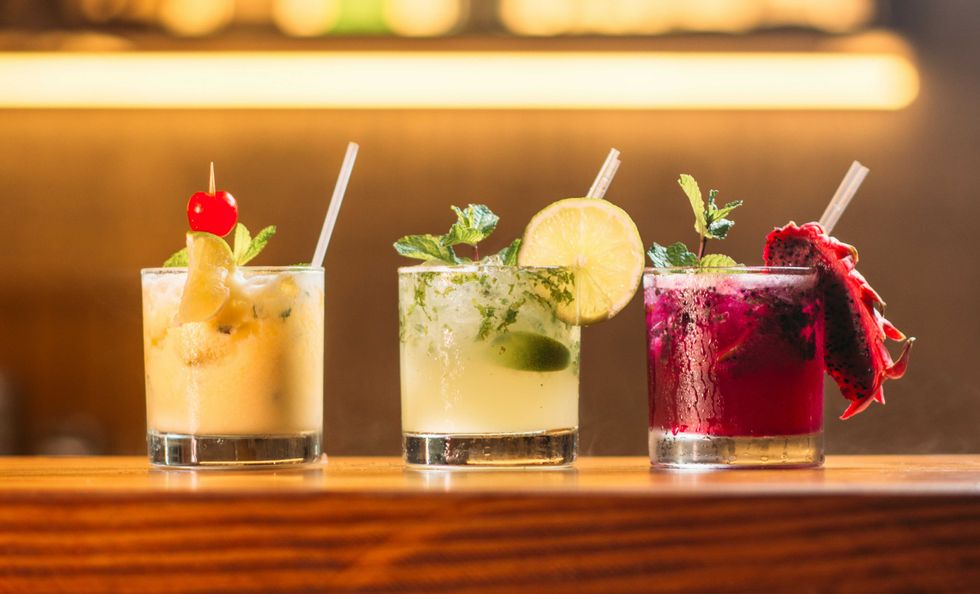
Unsplash
Speaking of drinks, another way to make your Friendsgiving memorable is to come up with a signature mocktail (for those who don’t consume alcohol) and cocktail. For the mocktail, you can also poll your friends about their favorite mocktail or fruits and come up with a mixture of your own. For the cocktail — although National Friendship Day is actually in August, I did peep that there are certain drinks that have been created in its honor. Some of them are located here for you to do a bit of tweaking on (if you’d like).
8. Ask Everyone to Share Their “Favorite Friend Quality” of Another
You know how it’s customary for everyone to go around and share what they are truly thankful for before having dinner? Well, to continue along with the Friendsgiving theme, have each person share what their favorite friend quality is about the person to their right. If folks are just meeting each other for the first time, instead they can share what they value the most in friendship overall, along with a story of how it was displayed to them personally over the past 12 months.
9. Send Each of Your Guests Home with a Fresh Gratitude Journal
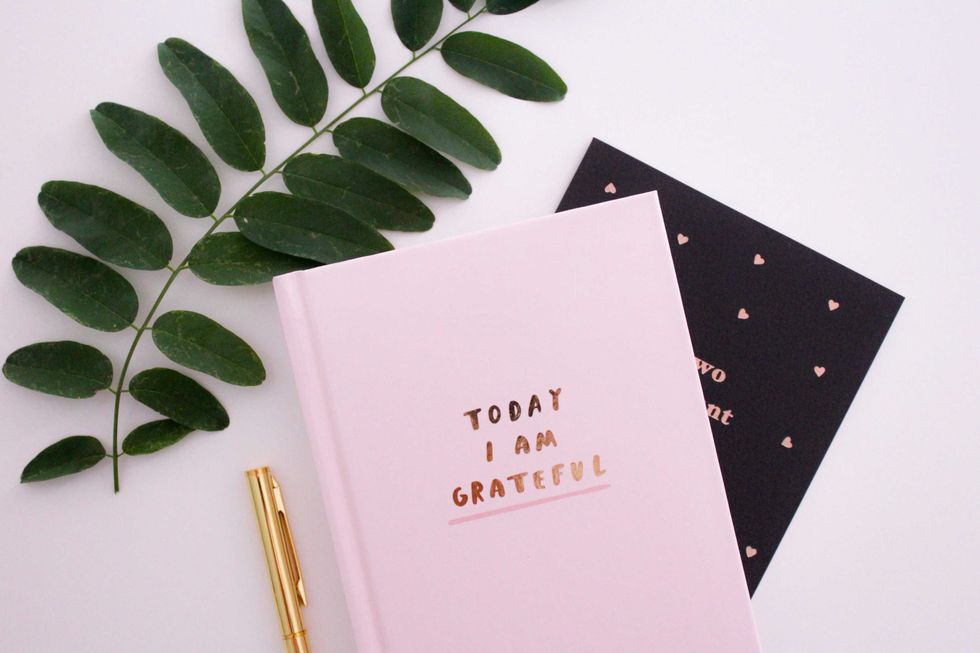
Unsplash
Wanna send folks home with a nice parting gift? It would be so on-trend to give each of them a gratitude journal. Listen, we are in some crazy times right through here (at least in the States) and so, encouraging your friends to set some time aside, regularly, to think about and then outwardly express what they are grateful for? That helps to keep stress down, keep things in perspective and it reminds us all to maintain a positive mindset as much as possible.
10. Watch a Nostalgic Movie
While everyone is enjoying dessert and drinks, how about watching a movie that brings back fond memories? A list of some of the most popular movies to come out previous Thanksgiving weekends is located here and a list of some favorite Black holiday-themed films can be found here. It’s a way to wind down and share some laughs before everyone heads home.
___
Friendsgiving. What a wonderful way to celebrate your friends while also observing Thanksgiving in a way that is totally on your terms. And now that you know how to put it together, what are you waiting for? Hit your friends up and let them know that, whether it’s on actual Thanksgiving Day or a few days before or after, you’ve got a special dinner in mind.
One that has a good time with amazing friends written ALL over it.
Let’s make things inbox official! Sign up for the xoNecole newsletter for love, wellness, career, and exclusive content delivered straight to your inbox.
Featured image by PeopleImages/Shutterstock


